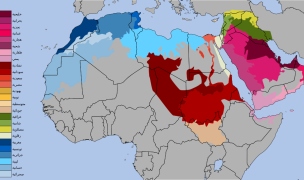 3 Terms
3 TermsHome > Terms > English, UK (UE) > Battle of Plataea 479 BC
Battle of Plataea 479 BC
The Battle of Plataea was the final land battle between the Greek alliance and the Persian Empire under the command of Mardonius during the second Persian invasion of Greece in 479 BC near the city of Plataea in Boeotia.
The previous year the Persian invasion force, led by the Persian king in person, had scored victories at the battles of Thermopylae and Artemisium and conquered Thessaly, Boeotia and Attica. However, at the ensuing Battle of Salamis, the Allied Greek navy had won an unlikely but decisive victory, preventing the conquest of the Peloponnesus. Xerxes then retreated with much of his army, leaving his general Mardonius to finish off the Greeks the following year.
In the summer of 479 BC the Greeks assembled a huge (by contemporary standards) army and marched out of the Peloponnesus. The Persians retreated to Boeotia and built a fortified camp near Plataea. The Greeks, however, refused to be drawn into the prime cavalry terrain around the Persian camp, resulting in a stalemate that lasted 11 days. While attempting a retreat after their supply lines were disrupted, the Greek battle line fragmented. Thinking the Greeks in full retreat, Mardonius ordered his forces to pursue them, but the Greeks (particularly the Spartans, Tegeans and Athenians) halted and gave battle, routing the lightly armed Persian infantry and killing Mardonius.
A large portion of the Persian army was trapped in its camp and slaughtered. The destruction of this army, and the remnants of the Persian navy allegedly on the same day at the Battle of Mycale, decisively ended the invasion. After Plataea and Mycale the Greek allies would take the offensive against the Persians, marking a new phase of the Greco-Persian Wars. Although Plataea was in every sense a resounding victory, it does not seem to have been attributed the same significance (even at the time) as, for example, the Athenian victory at the Battle of Marathon or even the Allied defeat at Thermopylae.
The numerically superior Persian infantry were of the heavy (by Persian standards) sparabara formation, but this was still much lighter than the Greek phalanx. The Persian defensive weapon was a large wicker shield and they used short spears; by contrast, the hoplites were armoured in bronze, with a bronze shield and a long spear. As at Marathon, it was a severe mismatch. The fight was fierce and long, but the Greeks (Spartans and Tegeans)continued to push into the Persian lines. The Persians tried to break the Greeks' spears by grabbing hold of them, but the Greeks responded by switching to swords. Mardonius was present at the scene, riding a white horse, and surrounded by a bodyguard of 1,000 men; while he remained, the Persians stood their ground. However, the Spartans closed in on Mardonius; a Spartan soldier named Arimnestus saw him astride his horse, picked up a large rock off the ground and threw it hard at Mardonius; it hit him squarely in the head, killing him. With Mardonius dead, the Persians began to flee; although his bodyguard remained, they were annihilated.Quickly the rout became general, with many Persians fleeing in disorder to their camp. However, Artabazus (who had earlier commanded the Sieges of Olynthus and Potidea), had disagreed with Mardonius about attacking the Greeks, and he had not fully engaged the forces under his command. As the rout commenced, he led these men (40,000, according to Herodotus) away from the battlefield, on the road to Thessaly, hoping to escape eventually to the Hellespont.
On the opposite side of the battlefield the Athenians had triumphed in a tough battle against the Thebans. The other Greeks fighting for the Persians had deliberately fought badly, according to Herodotus. The Thebans retreated from the battle, but in a different direction from the Persians, allowing them to escape without further losses. The Allied Greeks, reinforced by the contingents who had not taken part in the main battle, then stormed the Persian camp. Although the Persians initially defended the wall vigorously, it was eventually breached; the Persians, packed tightly together in the camp, were slaughtered by the Greeks. Of the Persians who had retreated to the camp, scarcely 3,000 were left alive.
According to Herodotus, only 43,000 Persians survived the battle. The number who died, of course, depends on how many there were in the first place; there would be 257,000 dead by Herodotus' reckoning. Herodotus claims that the Greeks as a whole lost only 159 men. Furthermore, he claims that only Spartans, Tegeans and Athenians died, since they were the only ones who fought. Plutarch, who had access to other sources, gives 1,360 Greek casualties, while both Ephorus and Diodorus Siculus tally the Greek casualties to over 10,000.
- Part of Speech: proper noun
- Synonym(s):
- Blossary:
- Industry/Domain: History
- Category: Ancient Greece; Ancient history
- Company:
- Product:
- Acronym-Abbreviation:
Other Languages:
Member comments
Terms in the News
Featured Terms
East Coast-West Coast hip hop rivalry
The East Coast–West Coast Hip Hop Rivalry was an ongoing feud in the 1990s between record labels, artists and fans of the East Coast and West Coast ...
Contributor
Featured blossaries
Browers Terms By Category
- Radiology equipment(1356)
- OBGYN equipment(397)
- Cardiac supplies(297)
- Clinical trials(199)
- Ultrasonic & optical equipment(61)
- Physical therapy equipment(42)
Medical devices(2427) Terms
- News(147)
- Radio & TV broadcasting equipment(126)
- TV equipment(9)
- Set top box(6)
- Radios & accessories(5)
- TV antenna(1)
Broadcasting & receiving(296) Terms
- Bridge(5007)
- Plumbing(1082)
- Carpentry(559)
- Architecture(556)
- Flooring(503)
- Home remodeling(421)
Construction(10757) Terms
- Cardboard boxes(1)
- Wrapping paper(1)
Paper packaging(2) Terms
- Organic chemistry(2762)
- Toxicology(1415)
- General chemistry(1367)
- Inorganic chemistry(1014)
- Atmospheric chemistry(558)
- Analytical chemistry(530)



